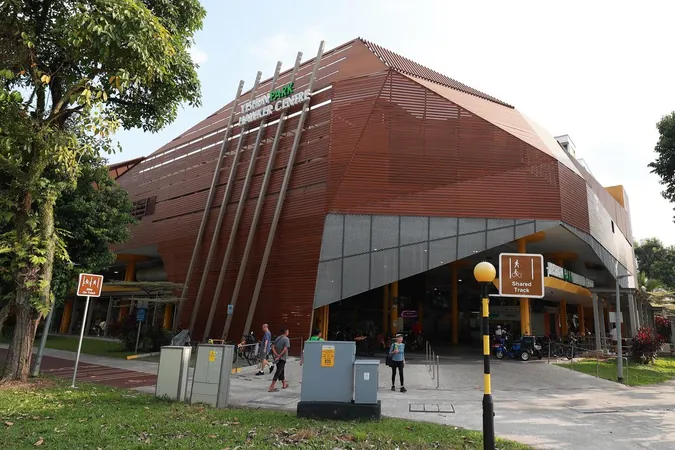
Timbre Group Defends Discounts and Management Practices Amid Hawker Criticisms
2025-08-27
Author: Wei
In a bold stand against recent criticisms, Timbre Group has come to the defense of its 10 percent discount strategy on app payments, asserting that this initiative not only draws customers to Yishun Park Hawker Centre but also empowers hawkers to boost their sales.
Responding to food critic K.F. Seetoh's recent allegations made in a Facebook post, Timbre Group explained their approach to managing two socially-conscious hawker centres: One Punggol and Yishun Park. In a statement released on August 26, Timbre clarified that hawkers have been benefiting from this app discount policy since 2017.
Addressing Criticism on Revenue Model
The critics have expressed concerns about hawkers absorbing the 10 percent discount offered to diners via the app. Timbre initially withheld comments but later informed the public that the platform's development and maintenance costs are fully covered by the company.
Seetoh's accusations that Timbre charges hawkers 15 percent of their total sales were also rebuffed. Timbre explained that Yishun Park operates under a gross turnover rental model, where the hawkers' rent is determined by their earnings—either a base fee of $1,750 or 15 percent of their monthly sales, whichever is greater.
This flexible rental structure aims to share financial risks and rewards between operators and hawkers, ensuring that lower earnings translate to lower rents.
Hawker Rent and CEH Model Comparisons
According to the Ministry of Sustainability and the Environment, the average stall rent in similar socially-conscious enterprise hawker centres (SEHCs) is about $1,700, significantly higher than the $1,250 median rent at non-subsidized cook food stalls managed by the National Environment Agency (NEA). This raises questions regarding the varying models applied to hawker centres across Singapore.
Concerns Over Gas Prices and Competition
Gas pricing has also come under scrutiny, with stallholders demanding more economical options. In a separate letter, they stated concerns over sustained high charges, paying about $14–15 per cubic meter, despite requests for lower prices through alternate suppliers. Timbre did offer a discount earlier in the year to ameliorate gas costs.
Surveillance and Privacy Issues
Seetoh's criticisms extended to Timbre's installation of CCTV cameras in every stall, which he argued breaches privacy. Timbre defended the move, stating that the cameras assist with noise complaints and ensure compliance among hawkers regarding sales transactions.
Despite Timbre's explanation, Seetoh noted that the monitoring ambiance was excessive and unnecessary, challenging the need for such surveillance in hawker centres.
Fines and Operational Compliance
The reported list of fines, which includes penalties for failing to accept loyalty app payments, also raised concerns among hawkers who deemed them excessive. Timbre clarified that these charges serve to maintain a clean and orderly environment, as outlined in their tenancy agreements.
Additionally, they highlighted that compliance measures are enforced only after multiple warnings.
Conclusion: A Call for Re-evaluation
With growing calls for a reassessment of the operator guidelines, Timbre Group stands firm on its approach, emphasizing the need for a balance between community-driven affordability and business sustainability. The ongoing debate underscores the evolving landscape of hawker culture in Singapore.
Moving forward, it appears that both the operators and hawkers will have to engage in open dialogue to address these pressing concerns.



 Brasil (PT)
Brasil (PT)
 Canada (EN)
Canada (EN)
 Chile (ES)
Chile (ES)
 Česko (CS)
Česko (CS)
 대한민국 (KO)
대한민국 (KO)
 España (ES)
España (ES)
 France (FR)
France (FR)
 Hong Kong (EN)
Hong Kong (EN)
 Italia (IT)
Italia (IT)
 日本 (JA)
日本 (JA)
 Magyarország (HU)
Magyarország (HU)
 Norge (NO)
Norge (NO)
 Polska (PL)
Polska (PL)
 Schweiz (DE)
Schweiz (DE)
 Singapore (EN)
Singapore (EN)
 Sverige (SV)
Sverige (SV)
 Suomi (FI)
Suomi (FI)
 Türkiye (TR)
Türkiye (TR)
 الإمارات العربية المتحدة (AR)
الإمارات العربية المتحدة (AR)